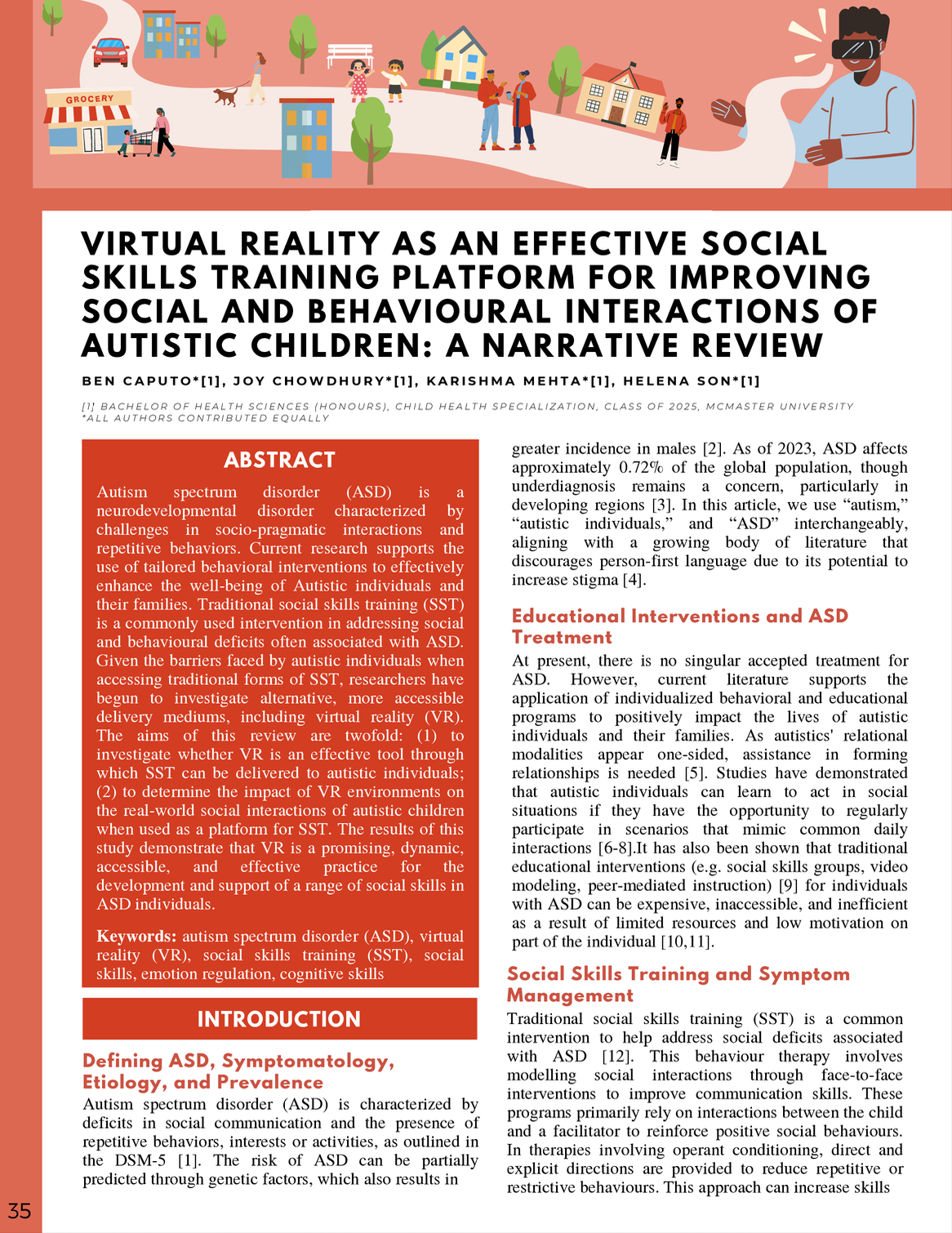Virtual Reality as an Effective Social Skills Training Platform for Improving Social and Behavioural Interactions of Autistic Children: A Narrative Review
DOI:
https://doi.org/10.15173/child.v3i1.3903Keywords:
autism spectrum disorder (ASD), virtual reality (VR), social skills training (SST), social skills, emotion regulation, cognitive skillsAbstract
Autism spectrum disorder (ASD) is a neurodevelopmental disorder characterized by challenges in socio-pragmatic interactions and repetitive behaviors. Current research supports the use of tailored behavioral interventions to effectively enhance the well-being of Autistic individuals and their families. Traditional social skills training (SST) is a commonly used intervention in addressing social and behavioural deficits often associated with ASD. Given the barriers faced by autistic individuals when accessing traditional forms of SST, researchers have begun to investigate alternative, more accessible delivery mediums, including virtual reality (VR). The aims of this review are twofold: (1) to investigate whether VR is an effective tool through which SST can be delivered to autistic individuals; (2) to determine the impact of VR environments on the real-world social interactions of autistic children when used as a platform for SST. The results of this study demonstrate that VR is a promising, dynamic, accessible, and effective practice for the development and support of a range of social skills in ASD individuals.

